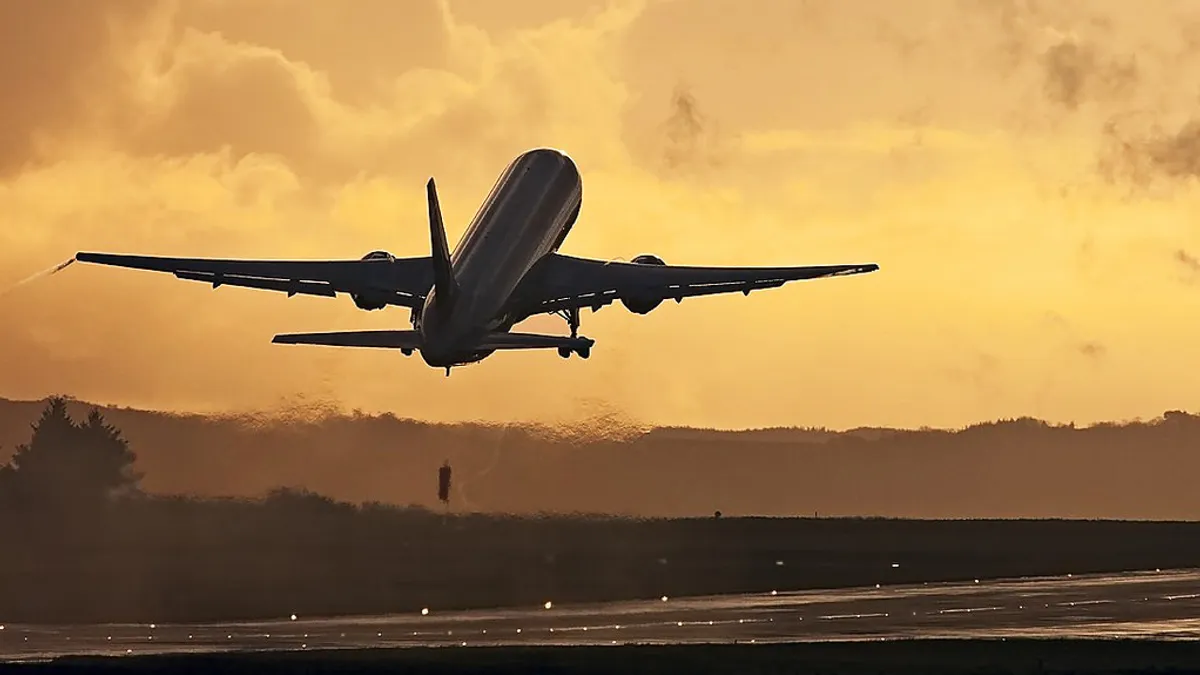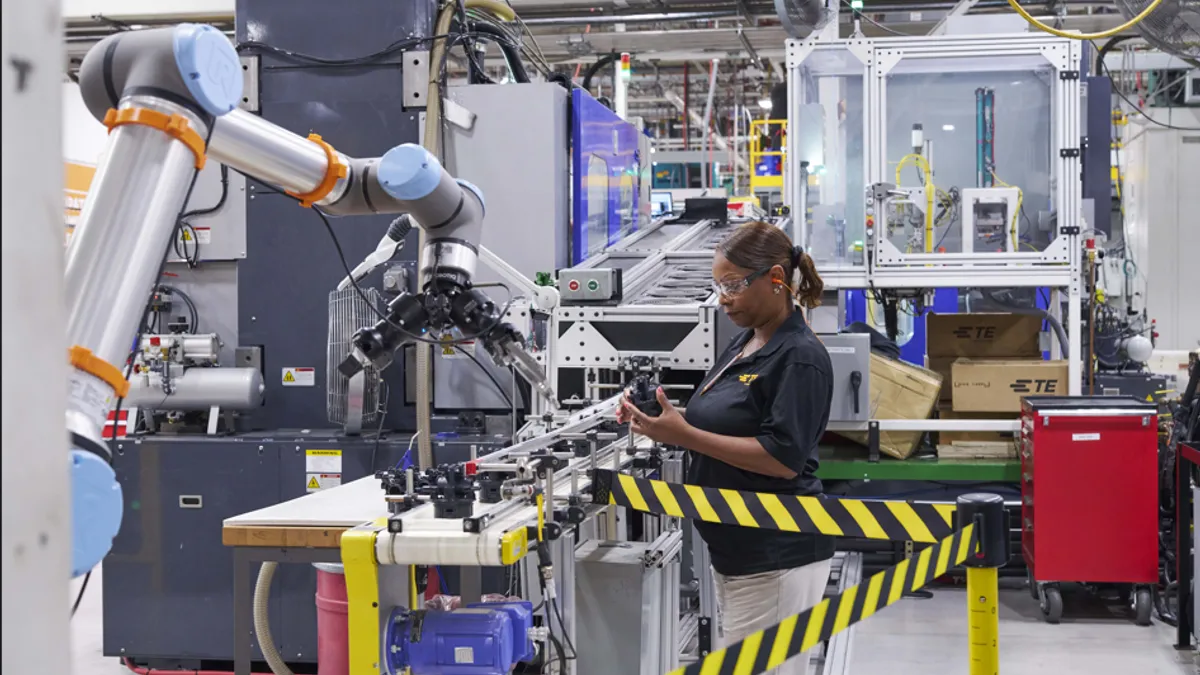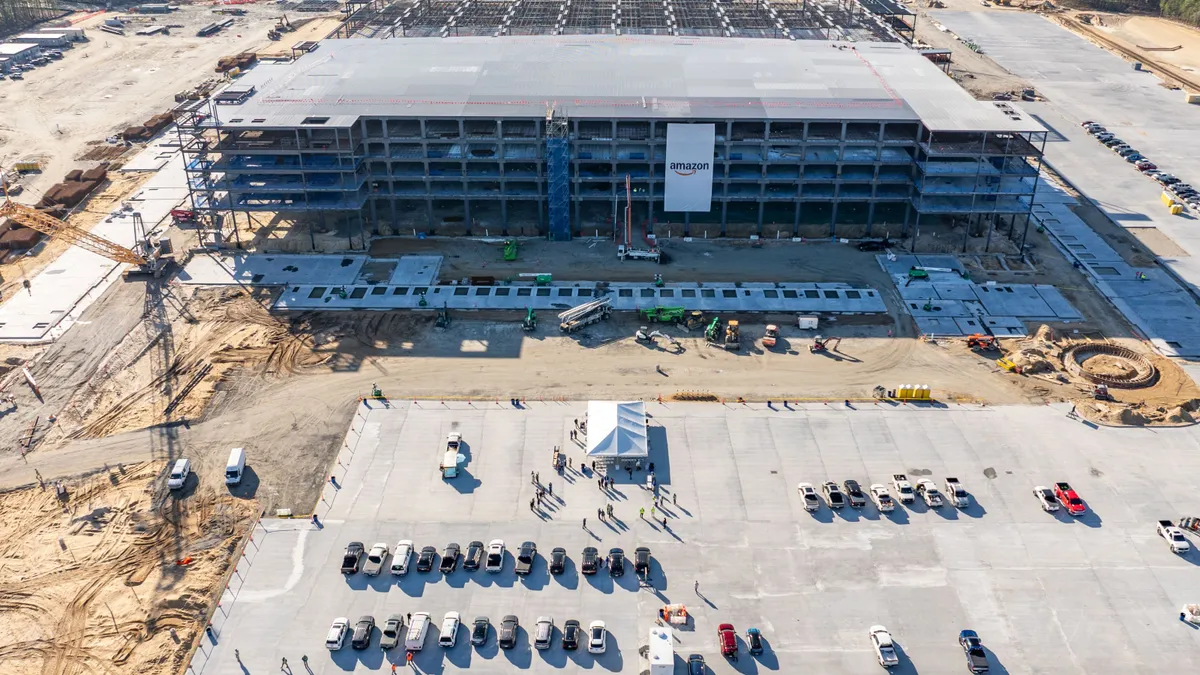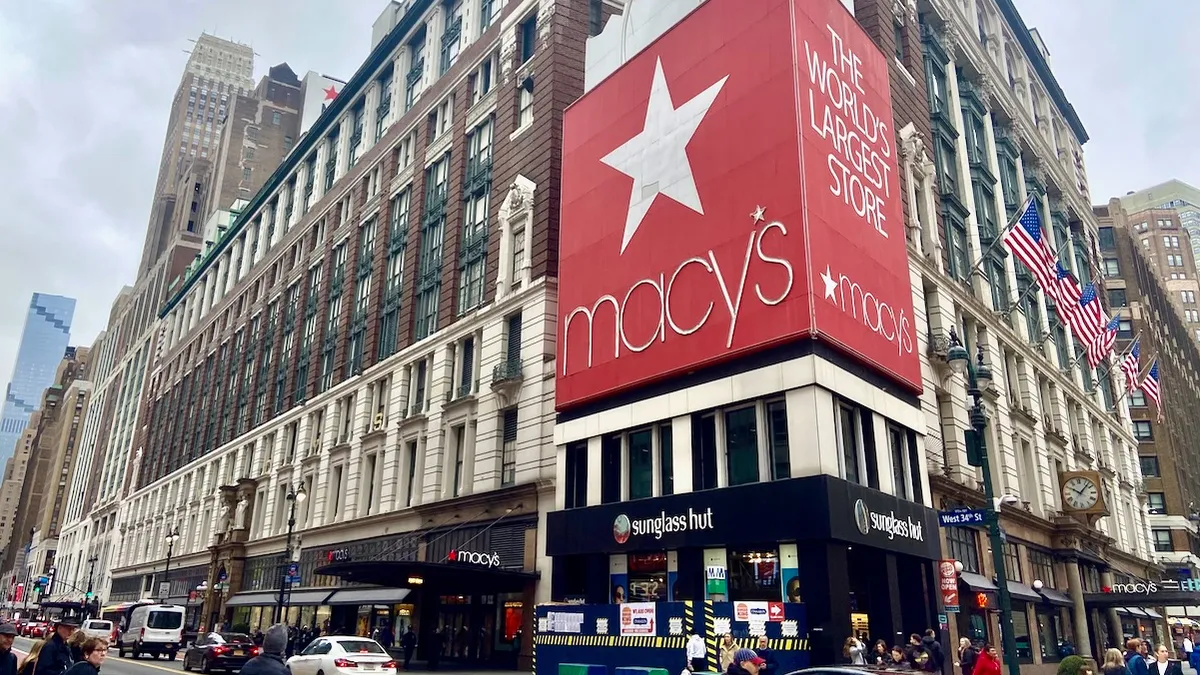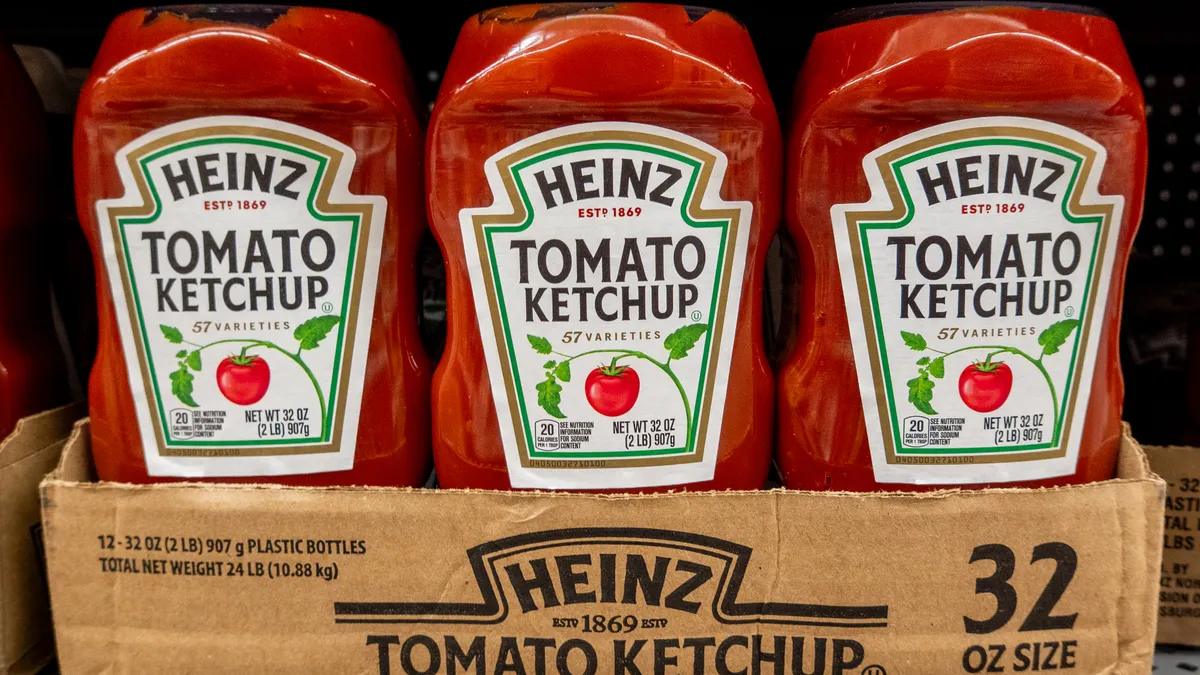Supply chains are constantly changing as new rules, technologies, resources and market trends transform operations. Here's a skim of the week's indexes, technology announcements, expansions and M&As from around the web.
In Case You Missed It
- Amazon's bet to control its supply chain has yet to break even.
- The 7th Circuit U.S. Court of Appeals upheld the federal mandate on electronic logging devices.
- Digitization of logistics could yield a $1.5 billion benefit for the supply chain.
Market Snapshot
Supply chains turn to the skies in times of crisis.
Recent statistics from the International Air Transport Association show air freight volumes rose by 6.3% in September, spurred in part by Hanjin's bankruptcy and Samsung's Galaxy Note 7 recall.
In context, the first six months of 2016 recorded an average growth of 0.9%. The last time air freight experienced such a high jump? During last year's U.S. West Coast port strike.
Speaking of turnarounds, an increase in sales and shipping during the holidays appears to have finally delivered during September despite more gloomy reports in previous weeks.
Cross-border freight shipments to NAFTA partners grew for the first time since December 2014, according to reports from the Bureau of Transportation Statistics. However, Mexico and Canada were not the only beneficiaries; the Wall Street Journal reports the U.S. trade gap shrank by 9.9% in September.
Good news prevailed across the supply chain, in fact.
The Institute for Supply Management's October 2016 Manufacturing Report On Business revealed a 1.8% rise in production, distributors showed strong expected or real demand by hiring more than 7,500 workers the same month, and consumers appear to be buying more too, according to the Bureau of Labor Statistics.
Confidence in supply chains is finally coming back, although such adjustments are to be expected as the holiday season arrives.
Technically Speaking
Increased regulatory pressures require innovation — or, at least that's what New Zealand-based company Bison is betting on. Bison's C-Leg is designed to easily weigh a container's mass while the it rests on the ground, which should help clients comply with the SOLAS' verified gross mass regulations, the Journal of Commerce reports.
Florida-based Xypper Technologies launched a new "Uber for trucking" web app designed to connect truckers with freight brokers' load boards throughout North America, DC Velocity reports.
Teologis, A Verizon Company, announced a partnership with John Deere to install its mobile resource management software into John Deere vehicles.
SAP announced various enhancements for its SAP S/4HANA platform, including improvements for its inventory, materials, warehouse and environment, health and safety management features.
SML RFID opened three new RFID Solution Innovation Centers worldwide, which are designed to help retailers adopt and test the technology before implementation. The company now houses innovation centers in Plano, TX; Clayton, NC; Shanghai, China; Mettman, Germany; and Corby, England.
Sealed Air recently released its new Opti Next Generation Shrink Films, a family of five FDA- and USPS-approved gauges, which promise 30% more footage and the flexibility to adapt to a wide range of packaging machinery.
Breaking Ground
Expanding multi-modal capacity is the next big thing in logistics infrastructure.
The Georgia and South Carolina Port Authorities agreed on a $3 billion joint venture for an intermodal container terminal along their border.
Meanwhile, the Florida Department of Transportation commissioned a study to improve intermodal freight movement along the Miami River.
The Department of Transportation is looking for new projects and partnerships to advance the country's infrastructure. The department announced it would award $850 million in a new round of its Fastlane grants.
More and more storage and distribution facilities are setting roots in Georgia. UPS is investing $340 million to build a 1.2 million square-foot distribution center in Atlanta, and in October Bennett International Group opened a 524,700 square-foot semi-automated warehouse for Deere & Co. outside Augusta, GA.
Amazon continues to expand its logistics network, but not only in the U.S. In addition to a new lease for a 303,360 square-foot distribution center near Portland, OR, the e-commerce giant announced it would bolster its European network through a 538,192 square-foot distribution center in Germany's Rhineland.
Mergers & Analysis
The shipping industry's consolidation is moving full speed ahead.
Japan's three largest shipping companies — Nippon Yusen (NYK), Mitsui O.S.K. Lines (MOL) and Kawasaki Kisen Kaisha (K Line) — announced they would merge their shipping operations, effective July 2017. Together, the shipping lines will handle 1,382 TEUs to become the world's sixth largest maritime carrier.
Mergers are hardly the only way to consolidate operations now that vessel sharing agreements (VSA) have become commonplace. The Ocean Alliance and THE Alliance recently announced their shipping routes, pending regulatory approval.
Meanwhile, Maersk Line and the Mediterranean Shipping Company of the 2M alliance recently reached a new VSA with Hamburg Sud and MOL to improve service between Asia and Australia, American Shipper reports.
If container shipping activity was not enough to show the industry's consolidation, shipyards too are selling off their assets to competitors. Bankrupt STX Offshore recently received four bids for its shipyard and cruise ship business, according to the Wall Street Journal.
And speaking of bankruptcy, Hyundai Merchant Marine and Korea Line yesterday submitted their final bids to take over Hanjin's Asia-Pacific vessels.
Outside of the shipping industry however, weak freight markets are leading to a slowdown of M&A activity.
In other news, Fort Wayne, IN-based Princeton TMX recently bought some of Norfolk Southern-subsidiary TransWorks' TMS assets, and German Kion Group completed its acquisition of automation and supply chain optimization company Dematic.



